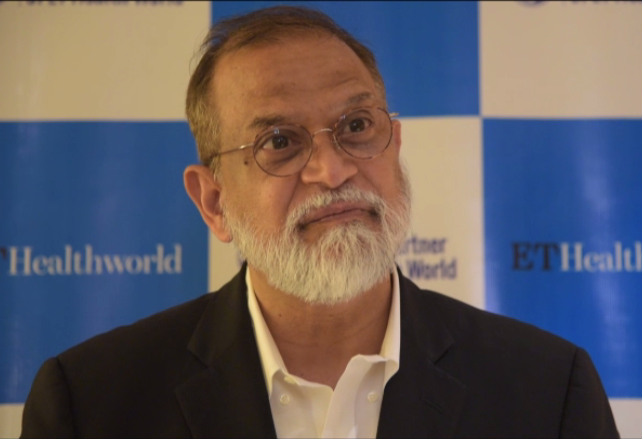
In an interview with ETHealthworld, Dr Pramod K Srivastava, Prof & Director of the Centre for Immunotherapy of Cancer & Infectious Diseases, Connecticut, US, talks about the role and opportunities in genomic research and the making of cancer vaccine.
You have been associated with clinical research right from the 90s. Tell us about the opportunities that genomics offers today?
Around 1990's there was no genomics in cancer immunology or cancer immunotherapy. The whole idea of genomics coming into it has come about only in the last 5 or 6 years because only then could we look at the entire genome of a patient.
You have been associated with clinical research right from the 90s. Tell us about the opportunities that genomics offers today?
Around 1990's there was no genomics in cancer immunology or cancer immunotherapy. The whole idea of genomics coming into it has come about only in the last 5 or 6 years because only then could we look at the entire genome of a patient.
What we can do today is to take the cancer of a patient, take their normal tissues and read the entire genome both normal and the cancerous within a week and we can compare how it is different within another week. So basically in two weeks time in surgery or from biopsy we can pinpoint all the positions where this cancer is different from the normal tissue.
This capacity didn't exist in a practical way until 2008-2009 but now sequenced genome is pretty much at the cost of a MRI scan, little more than that. Today, it is like a whole different world with different languages, different level of precision and different levels of possibilities.
This capacity didn't exist in a practical way until 2008-2009 but now sequenced genome is pretty much at the cost of a MRI scan, little more than that. Today, it is like a whole different world with different languages, different level of precision and different levels of possibilities.
Can cancer vaccine be a reality today?
Cancer vaccines are certainly not a reality today but it could they be a reality in 10 years time. It is not a question of if but it is a question of when and how and where. The way we treat cancer today is not very effective.
Today in terms of outcome there isn't much of difference and the reason is that the things that we use for these treatments like chemotherapy and surgery they don't discriminate between normal tissues and cancers in any real way. It kills cancers and normal tissues also and the whole goal is to traverse that very normal lane and damage the cancer more than damaging the normal tissue.
Cancer vaccines are certainly not a reality today but it could they be a reality in 10 years time. It is not a question of if but it is a question of when and how and where. The way we treat cancer today is not very effective.
Today in terms of outcome there isn't much of difference and the reason is that the things that we use for these treatments like chemotherapy and surgery they don't discriminate between normal tissues and cancers in any real way. It kills cancers and normal tissues also and the whole goal is to traverse that very normal lane and damage the cancer more than damaging the normal tissue.
ᐧ
ᐧ
Comments